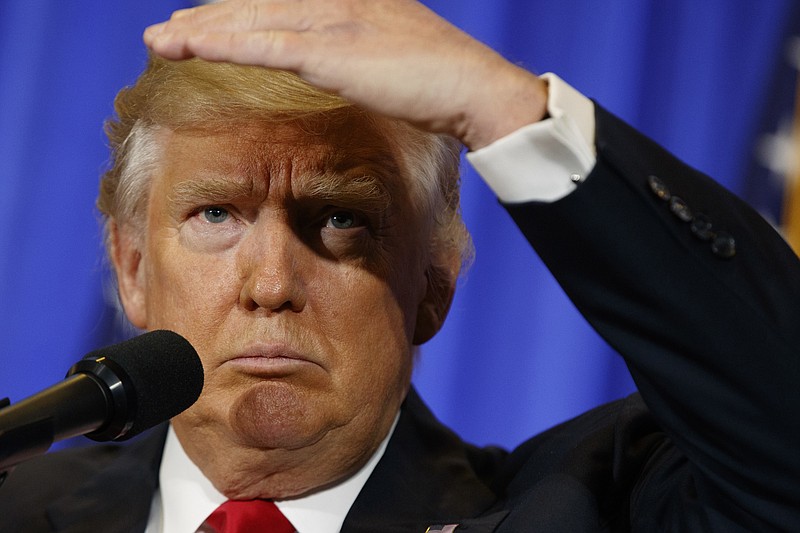There's a mood of confidence in Moscow bordering on triumphalism. Russia is dictating the grim outcome in Syria. It has annexed with impunity part of Ukraine and set limits on the country's Westernizing ambitions. It has influenced, through hacking, the outcome of the American election. It has fostered the fracture of the European Union. All this from a nation President Barack Obama dismissed in 2014 as a mere "regional power," acting "not out of strength but out of weakness."
In addition, whether Donald Trump was ever lured into some Moscow honey trap, Russia has reason to regard with satisfaction the coming presidency. Trump has called Putin "very smart" and "very much of a leader"; he has cheered on a British exit from the European Union; he has signaled deep skepticism of NATO; he has, in short, intimated that he may be ready to be complicit with Putin in the dismemberment of the Western alliance.
America's European allies are in a state of high anxiety. For the first time in decades, there seems to be a possibility that the White House will deal with Moscow at Europe's expense. The last thing Europe needs at a time of huge internal pressures, and in the year of the French and German elections, is a crisis in trans-Atlantic relations, or an American president who is openly dismissive of the European integration that brought peace to a war-racked continent.
No more important challenge awaits Trump than clarifying where he stands on Putin's threat to the West. Hurtling into some macho love fest with the Russian president based on the vague shared aim of smashing ISIS would be calamitous. Trump said that if Putin likes him, "That's called an asset, not a liability." Wrong. It's a liability if Trump is so susceptible to being liked that he forgets to be tough.
Trump must make clear soon after Jan. 20 that the United States stands by its NATO allies in the Baltics and that Article 5 of the NATO treaty guaranteeing collective defense is sacrosanct. Trump must leave no doubt that sanctions imposed on Russia for the annexation of Crimea and for interference in the American election will stand. He must warn Putin against attempts, in a reprise of the American operation, to sway the French and German elections through hacking and fake news.
Trump has gushed in support of British nationalist bigot Nigel Farage and Brexit. It's important that he not compound this error with backing for the French anti-EU rightist Marine Le Pen, who was at Trump Tower on Thursday, an ominous signal even if she did not see the president-elect. The French election is set for April 23. Putin wants nothing more than for Le Pen to win - still a long shot, but then so was Trump. Brexit plus Le Pen would leave the European Union in tatters.
Trump is drawn to Putin's authoritarianism, toughness and embodiment of white Christian resolve against threatening (read Muslim) hordes. He needs to get over these inclinations fast and get on with defending the free world.
There are encouraging signs: James Mattis, the retired general who is Trump's nominee for defense secretary, said during confirmation hearings that Putin "is trying to break the North Atlantic alliance." Rex Tillerson, the nominee for secretary of state, said, "Our NATO allies are right to be alarmed at a resurgent Russia."
Trump's approach to Russia is "a travesty" and has "raised more questions about our leadership than at any time since the 1920s," Nicholas Burns, a professor at Harvard's Kennedy School of Government, told me. More alpha-dog Trump-Putin connivance will endanger the world.
It is said that a century ago, Czar Nicholas II of Russia wrote in his diary, "The year 1916 was cursed; 1917 will surely be better!" Illusion is the mother of disaster, as Trump will learn if he does not change course on Russia.
The New York Times
